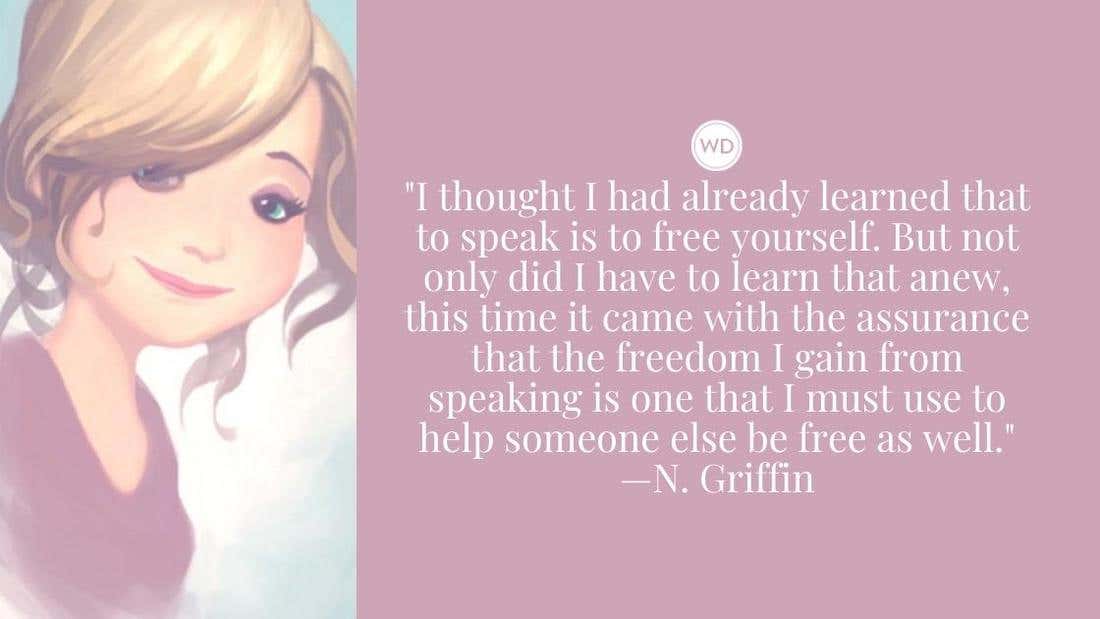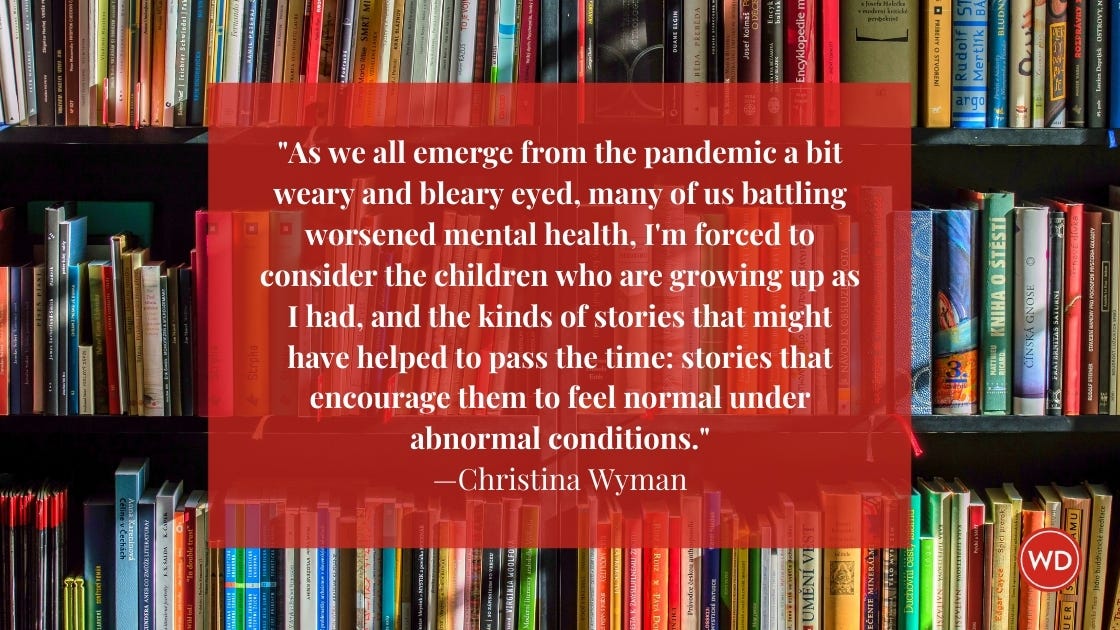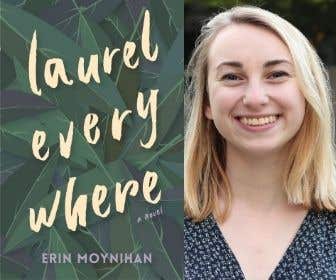David Almond: A Sense of Coming Home
reprinted from 2002 Children”s Writer”s & Illustrator”s Market
British author David Almond, former postman, brush salesman and teacher has earned a number of prestigious literary awards including a Michael L. Printz Honor Award, a 1998 Carnegie Medal and the Whitbread Award for his debut YA novel Skellig and the Printz Award for its follow-up Kit''s Wilderness. Almond has received plaudits from Publishers Weekly. And The New York Times compared his novels to the work of C.S. Lewis and The Indian in the Cupboard author Lynne Reid Banks.
Here Almond talks about writing Skellig and Kit''s Wilderness, shares his thoughts on the YA audience, discusses young adult authors he admires, and offers his advice to writers trying to break into the exciting world of YA.
How did your writing change when you switched from writing adult material to writing young adult novels?
When I suddenly found myself writing for younger people, I had a sense of coming home. This is where my style worked best. I''d been dealing with young voices when I''d been writing for adults, and I''d been working toward quite a clear syntax, and a very direct style. And the dialogue seemed to be a natural element of that.
When I made the change, I found the narrative was moving much more quickly-I didn''t have time to rest. Young people have minds that are very active and forward moving-it''s important to keep the pages turning. But in writing YA, I''m also able to take on more meditative aspects of life. Young people have more time that adults do, so I don''t think the need to keep the pages turning means you don''t have time to take on more meditative aspects, and I think young people are quite capable of grasping them. When I switched to YA I found I was writing better than I ever had before, and the demands of writing for young people meant that my writing had to be better, more fluid and better honed. And I think it is obvious that you have to be enormously respectful of your reader, to treat them as human beings.
How did you come up with the narrative style you used in Skellig?
Skellig really did kind of write itself. I was walking down the street one day, and the story just began to come to me. Skellig took hardly any redrafting, just a little touching up at the end. It was incredible. It''ll happen once in my life, and it was that sense of, "Oh yes, I''m at home." This is the kind of story I should be writing, and this is the style in which I should be writing.
I spent years working as a short story writer, where the purpose is to have most effect with limited resources, so I''ve been working toward that style, one that moved quickly but was able to carry a lot of meaning and implication. And then when I wrote Skellig it began to happen almost of itself. It didn''t become easy, but the story and the style came together, and it was one of the reasons I was very happy to be writing for young people, because I found that my style and the things I was interested in came together.
Since Skellig came so easily, was your follow-up novel Kit''s Wilderness more difficult to write?
Yes. After Skellig, which had been so fluid to write, Kit''s Wilderness was a monster. I rewrote the first third of the book about seven times, and threw it away each time. I knew what I was looking for and it began to take on its own life. I just knew this was the next book I had to write, and it had such power for me. The imagery was just pouring out and it was pushing me to find its proper shape. After the first third I did, and off it went.
The Horn Book called the final portions of Kit''s Wildnerness "not for the timid." Did you ever worry it would be too much for your YA audience?
By the time I was well into the book, into that last section, I was quite happy the story had taken on its own pace and dynamic and I trusted the audience to go with it. I didn''t think it was too much for them. In writing for young people, you re-experience the imaginative lives young people have, which is often not taken seriously by society at large. I felt I was very much in a young person''s world, and I didn''t feel it was too much for the audience, no.
Is this a good time for young adult literature?
It certainly seems to be a good time. I''m a newcomer but I suddenly find myself in a world that seems very vibrant and creative, and it''s having a big impact on booksellers and readers. Here in the U.K. YA is being taken more seriously, and I found the same was true when I was in the states.
People say kids don''t read anymore, but that''s absolute nonsense. Children are avid readers, and there seem to be many fine writers writing books for them.
What are the special considerations for writing compelling fiction for young adults? How do you advise writers tackle the task?
I think the obstacles are the same in all fiction: getting the story to take on a powerful rhythm, getting the language to flow, creating believable characters, getting the story started, pressing on through the middle, moving towards an authentic ending. The only advice really is to believe you can do it, then begin to do it. Don''t worry about the obstacles and the problems. Just write and keep on writing, page after page, building up the book. It''s helpful to see writing as a kind of play, rather than as a burden. Enjoy the language you use. Enjoy developing your characters. Enjoy throwing away the things that don''t work and putting in new things that help the story to live. Trust yourself, respect your audience and be brave with your language and themes.
Which YA authors do you admire? Who would you recommend?
Gary Paulsen. Robert Cormier. Melvin Burgess in the UK is very good. Philip Pullman, of course. Jannie Howker. It''s all in the language. These people are writing fantastically powerful, poetic stories dealing with the major themes of literature, and they''re not being skeptical and ironic. They''re writing the best stories they possibly can. There''s a power and integrity to these writers that I absolutely love.
Authors like Gary Paulsen and Robert Cormier do well here in the U.K. Maybe the UK''s just catching up. J.K. Rowling is having a big effect on everyone. Her Harry Potter books have made it cool to read, and helped to show that children do read, and that sort of easy skepticism about children as readers can''t hold water anymore.
What''s your advice to writers trying to break in to the young adult fiction market?
For me, when I wrote Skellig, it paradoxically helped to know nothing at all about the young adult market. I just wrote the best story I could in the best way I could. There''s always a danger in "researching the market" and trying to fit into it. By the time you''ve written your book, the "market" has changed. Write your own story in your own voice. Then try it out on the market. Don''t fall victim to fashion or try to be too topical. I suppose I simply try to write the kind of books I like to read now and I feel would have appealed to me when I was a young adult.
This article appeared in the 2002 edition of Children''s Writer''s & Illustrator''s Market. Check out the current edition.









